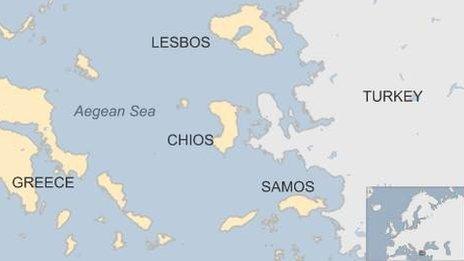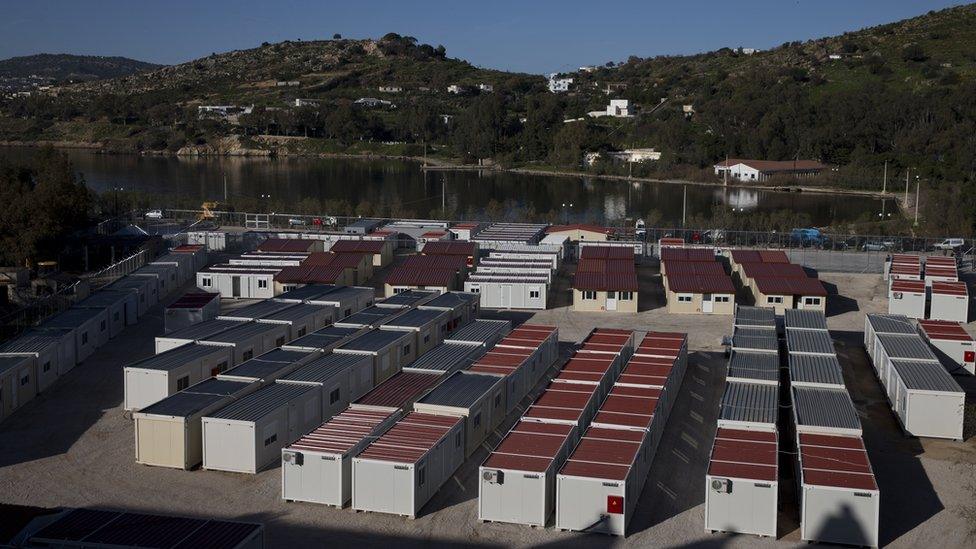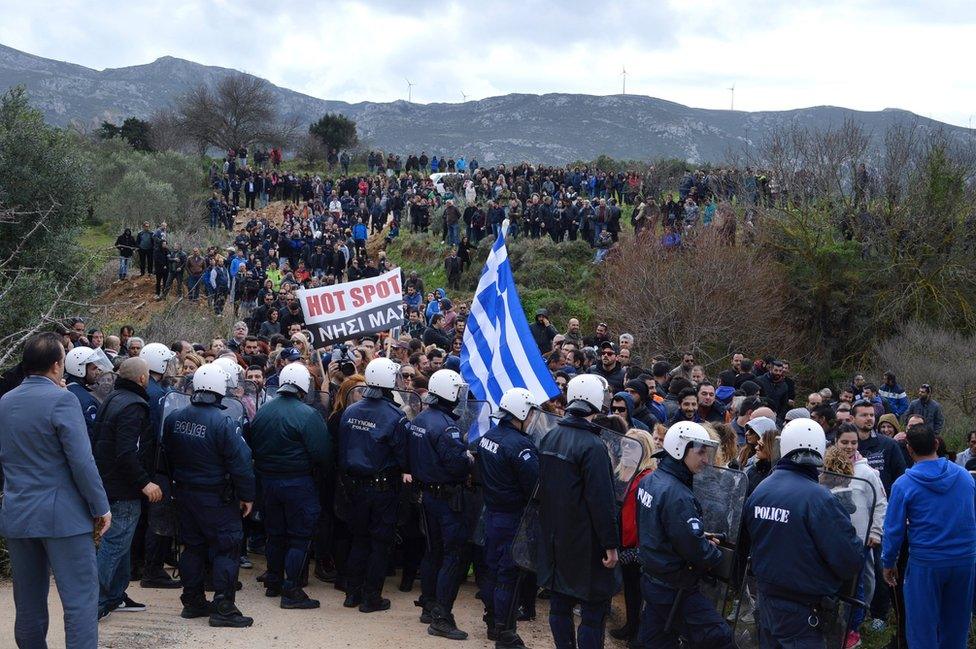Migrant crisis: Greece ready to house more on islands
- Published
James Reynolds reports on the Greece's management of the migrant crisis
Greece is starting to register migrants at four new reception centres on islands near Turkey, in line with a demand from the EU.
Five were supposed to have been completed by the end of last year. The fifth - on Kos - is not yet ready.
On Tuesday Greek Defence Minister Panos Kammenos visited the new centres - called "hotspots" - on Leros and Chios. Two more are on Lesbos and Samos.
Greece says the influx of migrants from Turkey has diminished in recent days.
Converted shipping containers and prefab shelters are being used to house thousands of migrants on the Greek islands. The EU says they must all be registered there and fingerprinted before going anywhere else.
Last year more than 850,000 migrants - mostly refugees fleeing war and abuses in Syria, Iraq and Afghanistan - entered Greece as a gateway to the EU.
Greece has been heavily criticised by EU partners for failing to register many of the migrants before they travel north through the EU. Germany is the target destination for most of them.
EU border staff are helping Greece now.
Laurence Peter looks at what the end of the Schengen zone could mean
Greece says its EU partners must share the burden of accommodating migrants. It refuses to become a sort of holding centre for the rest of Europe.
Last week the EU set Greece a deadline of three months to fix its border controls, amid fears of another migration surge from Turkey when the weather improves.
The crisis has put the EU's Schengen passport-free travel zone at risk. One after another, Schengen countries have imposed temporary border controls.
European Council President Donald Tusk says expelling Greece from Schengen would in no way solve the EU's migrant crisis.
The crisis will be high on the EU's agenda at a Brussels summit on Thursday.


A new "hotspot" is ready to receive migrants on Leros

On Kos locals protested against a new migrant centre - or "hotspot" - on Sunday
A note on terminology: The BBC uses the term migrant to refer to all people on the move who have yet to complete the legal process of claiming asylum. This group includes people fleeing war-torn countries such as Syria, who are likely to be granted refugee status, as well as people who are seeking jobs and better lives, who governments are likely to rule are economic migrants.